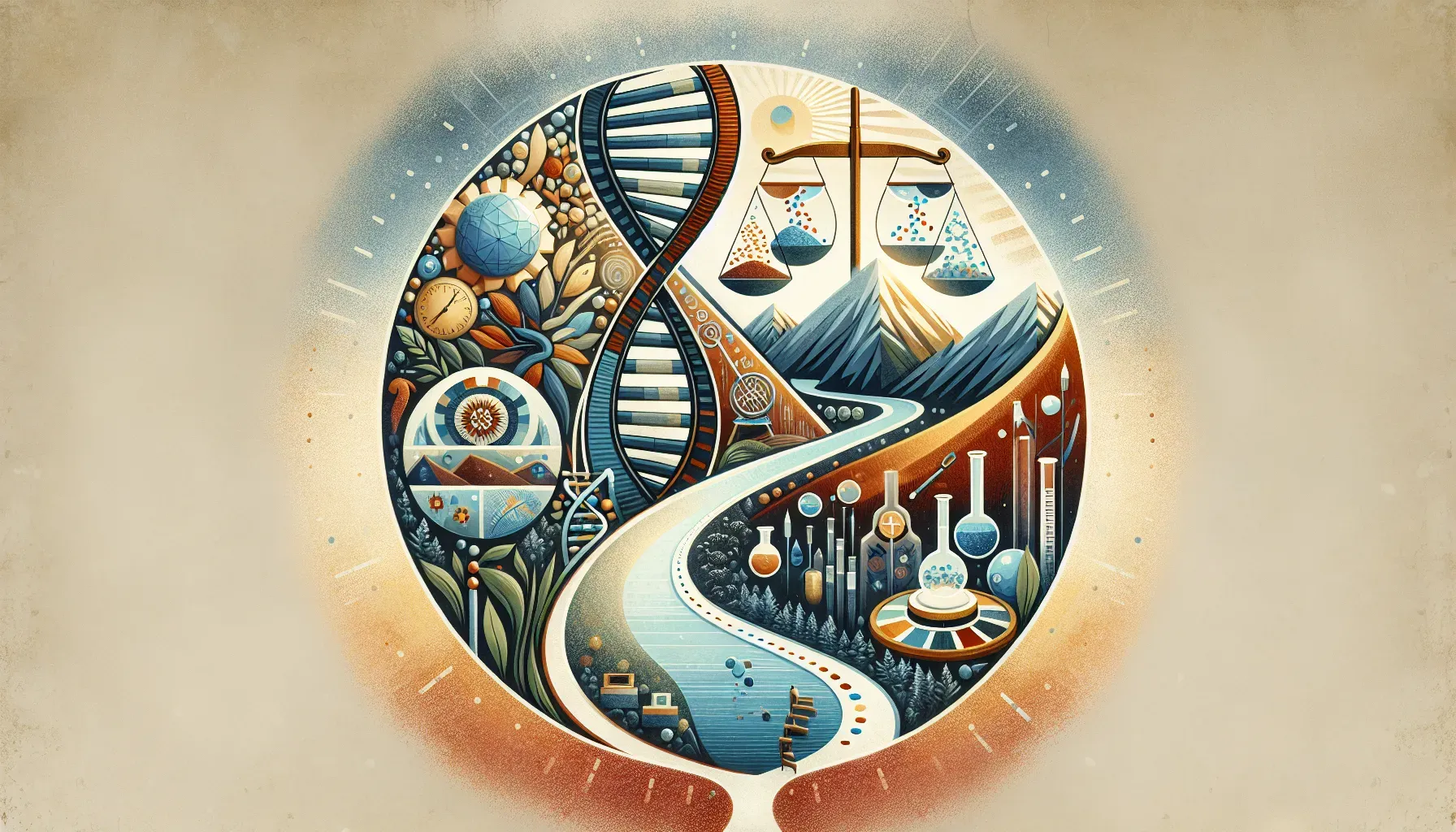Decoding Genetic Testing for Autism: A Layman’s Guide

Autism spectrum disorder (ASD) is a complex neurodevelopmental condition that manifests in diverse ways, often making it challenging to diagnose and treat. In recent years, genetic testing has emerged as a valuable tool in understanding the underlying causes of autism, offering insights that can potentially revolutionize how we approach this condition. In this guide, we will delve into the realm of genetic testing for autism, unraveling its significance, potential impact on personalized medicine, ethical implications, and future developments.
Genetic testing plays a pivotal role in unraveling the intricate genetic landscape of autism spectrum disorder. By analyzing an individual's genetic makeup, these tests can identify specific gene variants or mutations that may be associated with autism. This in-depth understanding allows researchers and healthcare professionals to comprehend the underlying genetic factors contributing to ASD, paving the way for more targeted interventions and therapies. Furthermore, genetic testing can elucidate the hereditary nature of autism, shedding light on how it may be passed from one generation to the next.
Understanding Genetic Testing for Autism Spectrum Disorder
Understanding the journey of a gene is fundamental to comprehending genetic research in the context of autism. Genes encode the instructions for our body's development and function, including aspects of brain development and neurological processes. Genetic research explores how variations or alterations within these instructions can influence the risk of developing autism spectrum disorder. By simplifying these complex concepts, individuals can grasp the profound impact of genetics on autism and appreciate the intricate interplay between genes and neurological development.
What Genetic Testing Reveals About ASD
The translation of genetic findings from laboratory settings to real-world applications is transforming how we diagnose and support individuals with autism. By leveraging genetic insights, healthcare providers can enhance diagnostic accuracy, leading to earlier identification of ASD and timely intervention. Moreover, these findings hold promise in tailoring support services and interventions to meet the unique needs of individuals with specific genetic profiles, fostering personalized and effective care strategies.
Related Article: Charting the Unseen Spectrum: Advancements in Neuroimaging for Autism Understanding
The Importance of Gene Variants in Autism
One of the most compelling prospects offered by genetic testing in autism is the potential for personalized medicine. By identifying individual genetic markers associated with ASD, healthcare practitioners can tailor treatment regimens to align with each person's unique genetic profile. This personalized approach holds immense promise in optimizing treatment outcomes and minimizing adverse effects, representing a significant stride towards precision medicine in the realm of autism care.
The Role of Genetic Research in Autism Diagnosis
As genetic research in autism progresses, breakthroughs and advancements frequently make headlines. Navigating these news updates can be daunting, especially when inundated with technical jargon and complex scientific terms. By acquiring a foundational understanding of key genetic concepts related to autism, individuals can confidently engage with news reports and stay informed about groundbreaking discoveries without feeling overwhelmed by scientific intricacies.
Related Article: Unearthing Potential: Gene Therapy's Promise in Autism Treatment
How Genetic Findings Shape Autism Support Strategies
The integration of genetic testing into autism diagnosis and research raises important ethical considerations that warrant thoughtful examination. These considerations encompass issues such as consent for testing, safeguarding privacy and confidentiality of genetic information, ensuring equitable access to testing services, and mitigating potential stigmatization associated with genetic predispositions. Understanding and addressing these ethical dimensions is critical in fostering responsible and inclusive practices within the realm of genetic testing for autism.
Looking ahead, the landscape of genetic research for autism holds immense potential for transformative advancements in care and support. Anticipated developments include refined understanding of gene-environment interactions impacting ASD susceptibility, innovative therapeutic modalities informed by genetic insights, and broader incorporation of genomic data into routine clinical assessments. These next-generation advancements are poised to shape a new frontier in autism research, offering hope for improved outcomes and quality of life for individuals on the spectrum.
Personalized Medicine and Genetic Insights
The intersection of genetics and autism represents a frontier brimming with possibilities an unfolding narrative that intertwines scientific discovery, personalized care, ethical consciousness, and future innovation. Through navigating this layman's guide to decoding genetic testing for autism, we aspire to demystify this amalgamation of science and compassion while inspiring contemplation about the profound implications it holds for individuals, families, society at large.
Frequently Asked Questions
Genetic testing reveals specific gene variants or mutations associated with autism spectrum disorder. By analyzing an individual's genetic makeup, healthcare professionals can identify underlying genetic factors contributing to ASD, leading to more targeted interventions and therapies. This understanding also helps clarify the hereditary nature of autism.
Personalized medicine tailors treatments based on individual genetic markers associated with autism. By aligning treatment regimens with a person's unique genetic profile, healthcare practitioners can optimize outcomes and minimize adverse effects. This approach represents a significant advancement towards precision medicine in autism care.
Ethical considerations in genetic testing for autism include issues of consent, privacy, and equitable access to testing services. It's essential to address potential stigmatization linked to genetic predispositions and ensure responsible practices that protect individuals and families while fostering inclusivity in research and diagnosis.
Check Out These Related Articles

Precision in Paintbrush Strokes: A Scientific Approach to Nurturing Artistic Talents in Autistic Children

Global Collaboration: Advancing Autism Research and Care Across Borders

Dispelling Myths About Special Diets and Autism: Examining Evidentiary Support
